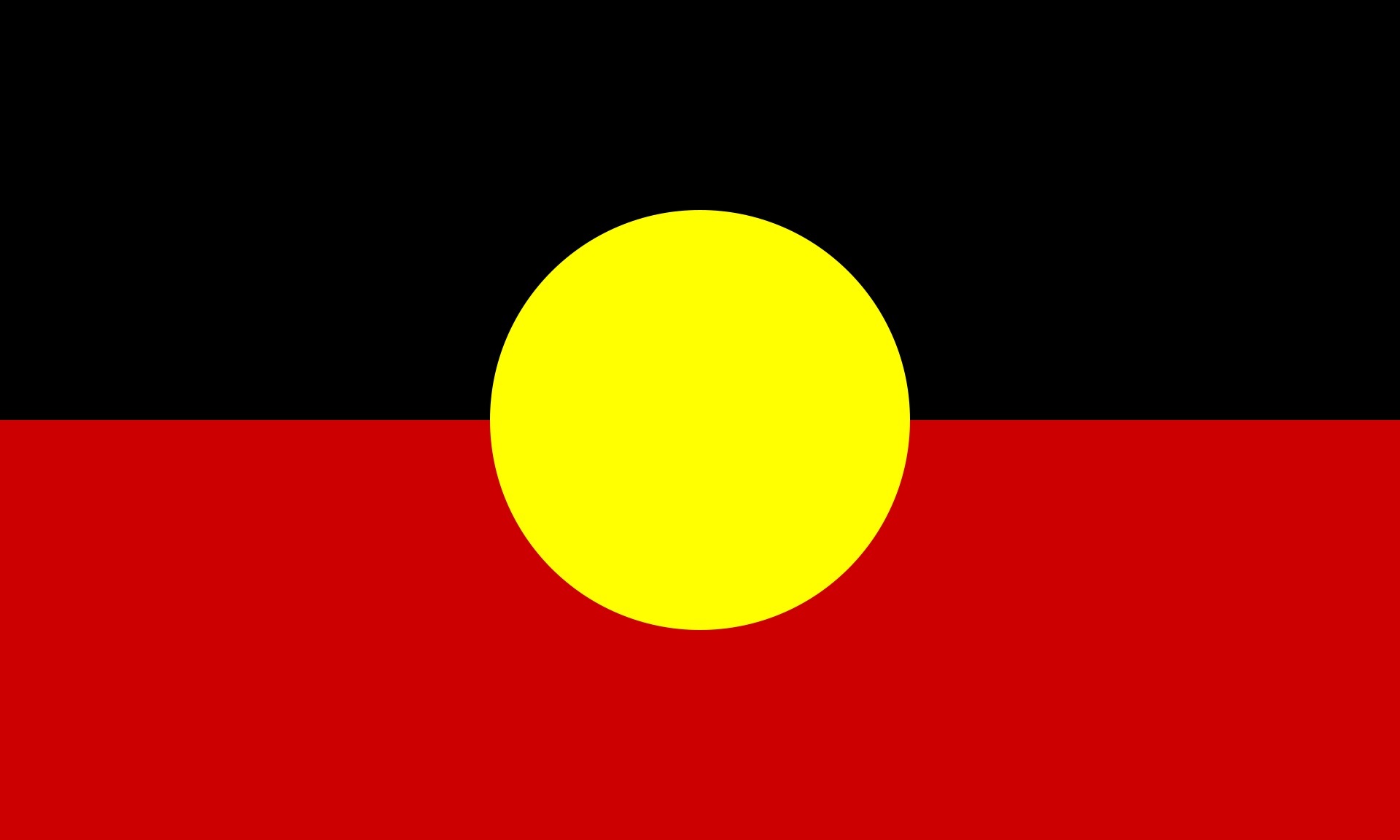NSW Government Consultation for Aboriginal people on desire for a treaty process: Commissioners appointed

The Aboriginal flag was designed and created by artist Harold Thomas, a Luritja man from central Australia and a member of the Stolen Generations. The flag’s design consists of a coloured rectangle divided in half horizontally. The top half of the flag is black to symbolise Aboriginal people. The red in the lower half stands for the earth and the colour of ochre, which has ceremonial significance. The circle of yellow in the centre of the flag represents the sun. The designer Harold Thomas says the colours of the flag represent the Aboriginal people of Australia and their spiritual connection to the land. The flag was first raised on 9 July in 1971 at a land rights rally in Victoria Square/Tarntanyangga, Adelaide, on then-National Aborigines Day. It has become an enduring symbol of Aboriginal strength, representing Aboriginal people and their ongoing spiritual connection to the land.
The NSW Government announced on 26 September 2024 it is delivering on its election commitment to consult with Aboriginal people about their desire for a treaty process, with the appointment of three commissioners to lead a process with Aboriginal people and communities across NSW.
The Government has appointed former senator Aden Ridgeway, academic Todd Fernando and Koori Mail newspaper CEO Naomi Moran to the roles.
The commissioners have been appointed for a fixed term of two years following an open, competitive process led by an independent Aboriginal advisory panel.
The commissioners will lead a 12-month consultation to hear from Aboriginal people. This will include asking whether Aboriginal communities want an agreement-making process with government, and if so, what form that process could take.
NSW is home to the largest Aboriginal population in Australia. The commissioners will engage with Aboriginal communities across metropolitan, rural, regional and remote parts of NSW, before delivering a report on their findings to the Government.
The appointees bring with them experience, expertise and connections to Aboriginal people and communities.
Consultation about agreement making aligns directly with NSW’s bipartisan commitment to the 2020 Closing the Gap National Agreement signed by then prime minister Scott Morrison and then premier Gladys Berejiklian.
The Closing the Gap Agreement includes a commitment to formal partnerships and shared decision-making with Aboriginal people to help close the gap faster in areas such as life expectancy, health and education.
Aboriginal people and communities hold answers to issues they face. When Aboriginal people have a direct say in these issues, the whole community gets better outcomes.
Over coming months, the commissioners will develop a detailed consultation plan, including Terms of Reference, with consultations to commence in 2025.
Interstate treaty and agreement-making processes have not been simple nor fast. This is the first step in work that could drive improved outcomes for Aboriginal people, and all NSW taxpayers, so the NSW Government will not be rushing.
The NSW Government allocated $5 million for this work in the September 2023 budget.
Find out more about the consultation
Once consultations commence, this web page will become the main source of information for Aboriginal people and communities about how to participate. It will include information about how to register for consultations, and other ways of participating in the process.
The consultation process is solely for Aboriginal people.
It is important to acknowledge that this consultation process does not set out to establish a treaty – it only aims to consult with Aboriginal people about whether they want a treaty or other formal agreement, and what that could look like.
However, a treaty is an agreement between states, nations or governments. For example, an agreement between Aboriginal communities and governments.
A treaty or other formal agreement could provide a range of positive outcomes, including:
- Recognising the rights of Aboriginal people as the First Peoples of NSW.
- Celebrating the cultures and histories of Aboriginal people in NSW and their continuing contributions to the fabric of this State.
- Empowering Aboriginal people to make decisions on matters that affect their lives and wellbeing.
- Resetting the relationship between Aboriginal people and government.
- Acknowledging the enduring impact of past wrongs and strengthening relationships through mutual respect.
The Government has stated; 'Many Aboriginal people have called for a treaty or formal agreement making process in NSW for some time.
Commencing a dialogue about treaty is a critical step along a path towards reconciliation with Aboriginal people.
However, it is not for government to determine the wishes of Aboriginal people. That is why three independent Treaty Commissioners have been appointed to lead consultations with Aboriginal people.
This process delivers on a commitment the NSW Government made in January 2023, ahead of the March 2023 State Election, to consult with Aboriginal communities on whether a treaty or other formal agreement making process in NSW is desired and, if so, what it might look like.'
The Treaty Commissioners will aim to give all Aboriginal people in NSW an opportunity to participate in the consultation process, which will cover all parts of NSW, including metropolitan, rural, regional and remote areas.
After the 12-month Consultation process, the Commissioners will prepare a report for Government with recommendations for next steps.
The Government has stated:
'It is important that Aboriginal communities have the time to consider these issues at a pace that works for them. The government has committed to start an initial 12-month period of consultation. The next steps will be considered based on Aboriginal community views.'
Minister for Aboriginal Affairs and Treaty David Harris said:“The appointment of the treaty commissioners is central to the process of listening to Aboriginal people on treaty and agreement-making.
“The commissioners have been appointed following a rigorous process that attracted strong candidates.
“We get better outcomes when we listen to the needs of Aboriginal people and communities. We must ensure Aboriginal people have a direct say on matters that affect them.”